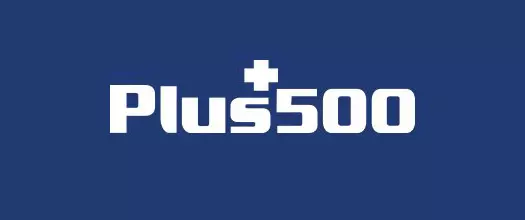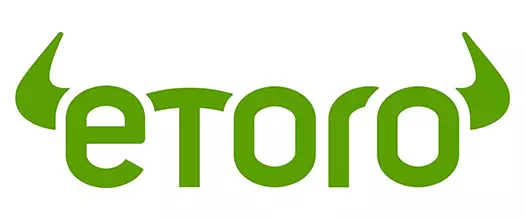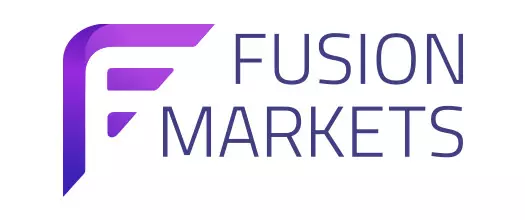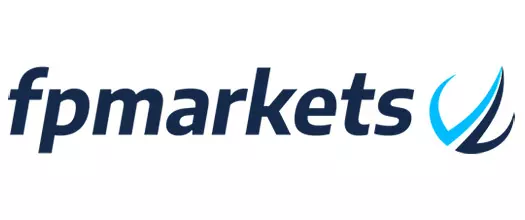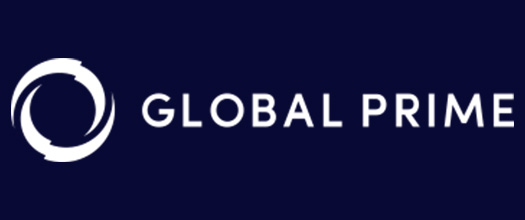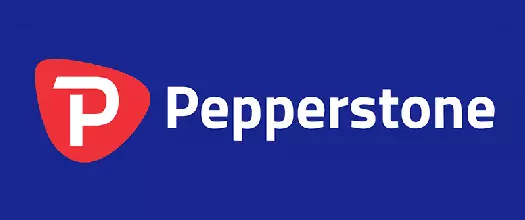- Jump to:
- Main features of the best Netherlands Forex brokers
- Forex Legislation
- Financial Regulators
- Payment Methods
- Trading Software
- Mobile Trading
- FAQ
Our team of expert traders has tested many regulated and trustworthy Forex brokers that accept traders from Israel and compiled a top list of the very best. Each broker operating in Israel received a quality score based on several factors, including its Trustpilot rating, regulation, fees and commissions, available trading platforms, customer service, and more.
 Plus500 USThis content applies only to Plus500 US and clients from the United States. Trading futures involves the risk of loss.
Plus500 USThis content applies only to Plus500 US and clients from the United States. Trading futures involves the risk of loss. eToro50% of retail investor accounts lose money
eToro50% of retail investor accounts lose money Fusion Markets74-89% of retail's CFD accounts lose money
Fusion Markets74-89% of retail's CFD accounts lose money FP Markets73.85% of retail investor accounts lose money
FP Markets73.85% of retail investor accounts lose money Global Prime74-89% of retail CFD accounts lose money
Global Prime74-89% of retail CFD accounts lose money Pepperstone72.9% of retail investor accounts lose money
Pepperstone72.9% of retail investor accounts lose money
Below you will find a comprehensive comparison table of Forex brokers for traders in Israel. We rank them according to several factors, including regulation, spreads and commissions, Trustpilot ratings, trading instruments, trading platforms, and deposit and withdrawal methods.
Our team has thoroughly evaluated all brokers listed below using TradingPedia’s exclusive methodology.
Main Features of the Best Israeli Forex Brokers
- Brand
- Trading platforms
- Minimum deposit
- Regulations
- Trading instruments
- Spreads
- Leverage for Forex CFDs
- Leverage for Crypto CFDs
- Leverage for Indices CFDs
- Deposit methods
- Withdrawal Methods
- Commission per Lot
- Contact details
Located in the Middle East, Israel is a small country with a rich and long history that can be traced back to pre-biblical times. It has a population of roughly 8.6 million and diverse religious affiliations, although most residents adhere to the Jewish faith.
The country’s economy experienced rapid growth after 1948, largely due to an influx of well-educated Western immigrants who contributed significantly to its gross domestic product (GDP). Israel is among the countries with the highest standard of living in the Middle East, with unemployment rates dropping to a historic low of 3.4% in October 2019.
The local economy is mostly knowledge-based, with the key engines for growth being high technology and industrial manufacturing. The country ranks second in terms of the number of start-up companies, surpassed only by the USA. It has the third-largest number of NASDAQ-traded companies in the world, behind only China and the US.
Some of the biggest tech companies have built their first overseas research and development centers in Israel, including Apple, Intel and Microsoft. Israel is also responsible for more than 23% of all diamond exports in the world.
Given this impressive economic track record, it is not surprising that the birthplace of the Jewish people has become a prime destination for many of the world’s largest multinational conglomerates, entrepreneurs and investors, including Berkshire Hathaway.
The popularity of Forex trading has grown over the past several years, and so has the volume of trades executed in the country. In the early 2000s, there was little regulation of this sector and many foreign-based companies tried to capitalize on this fact.
However, things changed when the Israeli government introduced a new regulatory framework for Forex brokerages operating in the country.
Regulations were tightened in 2015 to deal with the fraudulent offshore brokerages that had previously infiltrated the local Forex market.
Israel Forex Legislation
Trading Forex is legal in Israel, and the local market is regulated by the Israel Securities Authority (ISA). Prior to the new regulations introduced in 2015, there was an influx of foreign brokers that served the Israeli market with licenses from offshore centers such as Cyprus.
The authorities decided to improve the regulatory framework to minimize the risks of local retail traders suffering from the malpractices of fraudulent offshore companies. The regulations are enforced under Amendment 42 of the Securities Law.
Forex brokers must receive licenses from the Israel Securities Authority before they can legally operate in the country. Various restrictions are in place in line with the licensing conditions. Foreign trading companies must have adequate operational capital so they can handle market volatility and operating risk.
Additionally, the licensed firms are expected to present monthly records to the ISA regarding the trading activities they conduct. Brokers looking to apply for a local license are also categorized based on their starting capital.
The minimum required capital for a license application is ₪800,000, which corresponds approximately to US$200,000. Brokers that meet this condition are eligible for limited licenses only. Despite this, they are subject to rigorous regulatory supervision.
To receive what the Israeli regulator calls a ‘full’ license, the companies must meet the ₪1.5 million (around US$380,000) threshold for initial capital. They also have to use the services of liquidity providers to protect themselves against market volatility.
The highest degree of license requires initial capital of at least ₪4 million, which is roughly US$1 million. The brokerage firm must maintain this capital in reserves so it remains eligible for its license. But it does not end there.
The Israeli regulator performs annual checks to ensure brokers continue to meet their licensing conditions. Those who fail to do so are subject to recategorization. Apart from that, each applicant must contribute a fee of ₪25,000 for a restricted license or ₪50,000 for a full license. The companies must provide regular reports about their trading activities.
Brokers must meet certain transparency conditions as well. Spreads should be restricted based on each client’s individual means, which should be investigated by the brokerage firm itself. The company must determine how old the customer is (they should be at least 18) and how much trading experience they have.
Before a person can open a live account and make a deposit, licensed brokers must establish whether the applicant is fully aware of the risks associated with the financial instruments they intend to trade. If the client fails to meet these requirements, the broker must block them from trading on the website.
Some of the conditions outlined by the ISA aim to protect the funds of Israeli traders. Customer funds should always be stored in segregated accounts from which trade amounts are deducted or credited.
This ensures that clients get their funds back if their broker goes out of business. As for withdrawal requests, these should be executed promptly. All trader transactions should be reported as well. Giving financial advice and recommendations to traders is strictly prohibited.
To prevent local retail customers from incurring crippling losses when trading complex derivatives, the Israeli regulator has introduced limitations on the maximum permitted leverage. The latter varies depending on the volatility of the traded instruments. The leverage ratio is 1:20 for high-volatility assets, 1:40 for medium-volatility assets, and up to 1:100 for low-risk investments.
Considering how tough licensing conditions are in Israel, it is not surprising that many brokers continue to serve traders from the country with licenses issued by major offshore jurisdictions such as Cyprus.
Israel Financial Regulators
The Israel Securities Authority (ISA) was founded in 1968 and is currently entrusted with the oversight of the Israeli Forex trading sector. It was modeled on Great Britain’s previous financial regulator, the Financial Services Authority (FSA), which was replaced by the UK Financial Conduct Authority (FCA) at the beginning of April 2013.
Apart from regulating the financial securities sector in Israel, the ISA is mandated to combat securities fraud and other questionable activities, such as insider trading, that could be harmful to the local market and the trading community.
Another priority of this regulator is ensuring consumer protection. This is among the main reasons why the ISA adopted a tougher stance toward Forex brokers back in 2015. The market was much more liberal before the changes, which led to a massive wave of trading scams at the expense of Israeli retail customers.
The ISA also works toward ensuring market transparency and observes carefully whether its licensees adhere to its strict regulatory policies. The ISA has a website, available in both English and Hebrew, where traders can check which brokerages are locally licensed. At the moment, the ISA license register features only four names – ATRADE Limited, Plus500IL Limited, FXCM Trading Limited and TGL Colmex Capital Markets Limited.
Israel Forex Payment Methods
Israel-friendly brokers usually offer multiple types of account to meet the needs of traders from different walks of life, with some of the most common options being micro, standard and professional accounts. Some also support swap-free accounts where no rollover interest is paid for overnight positions, in compliance with Sharia laws (around 18% of Israel’s population is Muslim).
Israeli beginner traders can practice with demo accounts until they gain enough experience. Those looking to trade for real money will have to choose a suitable payment method with which to top up their live accounts.
Before you choose a method or a broker, you should carefully consider several important factors. These include minimum deposit amounts, whether the method works for withdrawals, and what currencies it supports. Potential processing fees also merit consideration.
Always ensure your broker of choice segregates customers’ funds and encrypts its website to protect your personal information and money. The ability to deposit quickly is also essential.
The most common way to deposit into your Israeli trading account is via bank transfer. This payment option is universally accepted by brokerages and is available to traders from all over the world, Israel included. You can make the transfer using your online banking account or in person at your bank. The downside of bank transfers is that they often require several business days to complete.
Israeli traders who insist on speedier deposits should opt for credit or debit cards, which rank among the most widely used payment methods in the country. Most brokers accept cards by major companies such as Mastercard and Visa. Deposits with cards are usually immediate but may sometimes take several hours. The bottom line is that cards still beat bank transfers in terms of speed.
The use of e-wallets in Israel remains relatively low for the time being, especially in comparison with other countries. Nevertheless, e-wallets are widely available with brokers that accept Israeli traders. Brands like Skrill, PayPal and Neteller are commonly listed among the options. Minimum initial deposits at Israel-friendly brokerages normally range between $5 and $10,000, depending on account type.
Popular Trading Software in Israel
When choosing a broker, Israeli traders should check which trading software it uses, as this is the bridge between them and the Forex markets. Some of the most desirable qualities of trading platforms include an easy-to-use design, seamless navigation, speedy order execution, and the availability of additional tools for market analysis.
It is advisable to choose a broker whose platform is compatible with multiple operating systems. This way, you will have access to your positions regardless of the device you use. Many Israel-friendly brokers still rely on the third-party software developed by MetaQuotes, with customers commonly having a choice of MetaTrader 4 or MetaTrader 5.
If you intend to trade only Forex, we suggest you choose MetaTrader 4, which was designed specifically with the needs of foreign-exchange traders in mind. Israeli residents looking to diversify their portfolios are recommended to opt for MetaTrader 5. It offers a wider range of financial instruments, including options, futures and bonds.
Additionally, MetaTrader users benefit from a broad range of handy tools they can implement to analyze market trends. There are dozens of indicators to work with. Charting is also possible, not to mention you have the option to place trades directly via your charts.
Language is never a barrier for MetaTrader users because the software supports approximately 30 languages, including Hebrew. The platform can be installed on desktop devices running Microsoft Windows, macOS and Linux. There is also the option to trade directly in a browser, since MetaQuotes’ WebTrader is commonly available.
Another widely used third-party software platform is Spotware Systems’ cTrader, whose biggest claim to fame is its social trading feature. The cTrader Copy functionality allows Israeli traders to copy the strategies of successful investors as well as to provide their own strategies for copying by other users.
Some brokers that serve the Israeli market give their clients a choice of multiple platforms, using third-party software in parallel with proprietary solutions. Needless to say, each proprietary platform has a set of unique features. The best way to determine whether given software works for you is to open a demonstration account and use the platform yourself.
Mobile Trading in Israel
The Forex markets are incredibly dynamic where price movements are concerned, with currencies changing value every second, especially with major pairs like the EUR/USD. It is of primary importance for traders to stay ahead of current prices so they can immediately spot favorable opportunities to profit from these movements.
At the same time, nobody likes to be chained to their desk throughout the entire day. The solution is to go mobile so you can take your trades with you wherever you are. This way, you will be able to react quickly to both beneficial and unfavorable price movements.
Mobile trading has gained traction around the world and Israel is no exception. After all, this is a nation of avid mobile users, where smartphone penetration among the adult population reached 72% in 2019.
Israel-friendly brokers cater to the demands of local mobile users by offering them intuitive apps compatible with the two most commonly used operating systems, Android and iOS. Some of these are proprietary, although you can also download the MetaQuotes apps to log into your trading account on the fly, provided you have registered with a broker that uses this platform.
As for the features mobile traders can expect, there are plenty. You can open or close your positions in a split second for a variety of instruments, including currency pairs, commodities such as gold and silver, and indices. Many apps feature built-in chart indicators, economic calendars with all the important news, and multiple timeframe ranges. Access to real-time quotes is, of course, granted.
